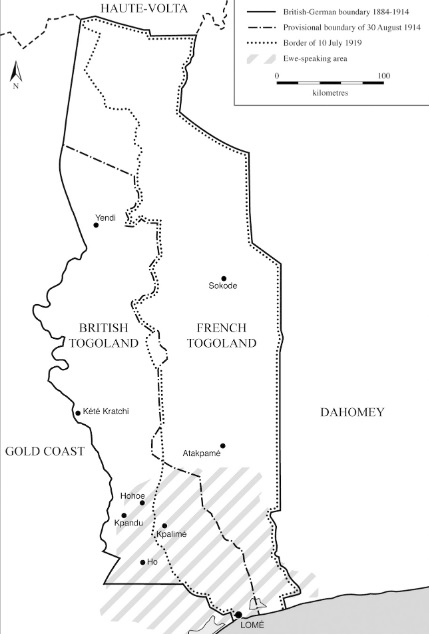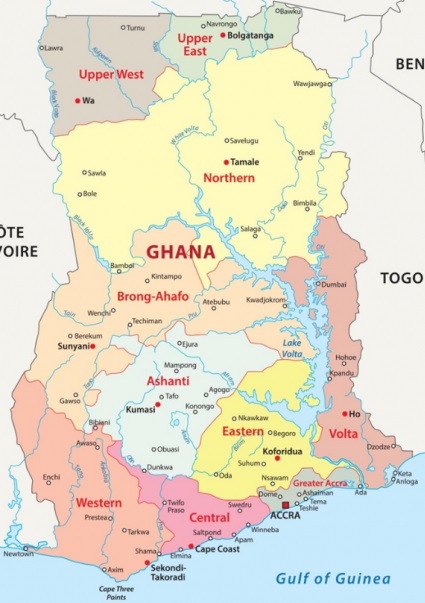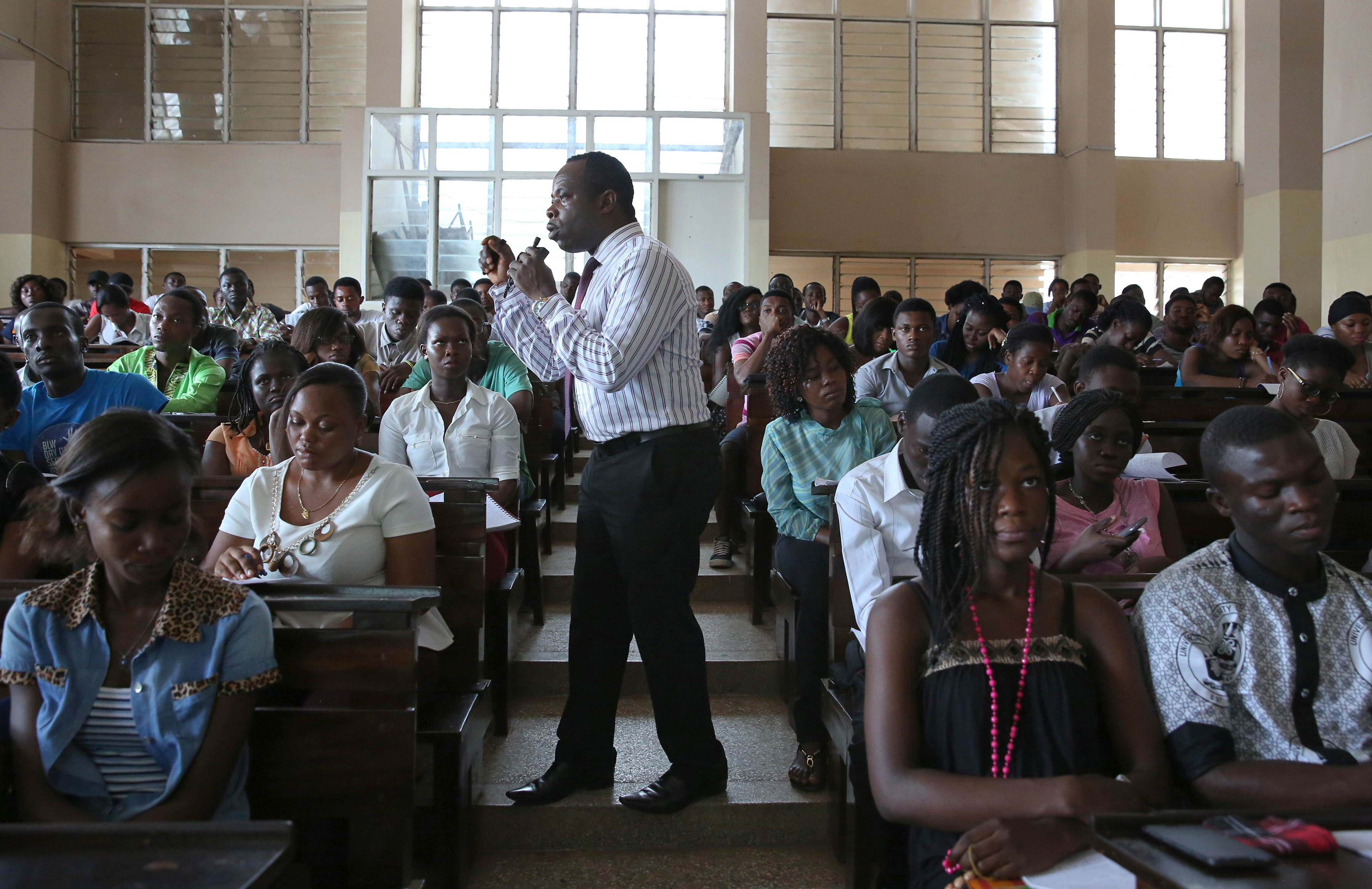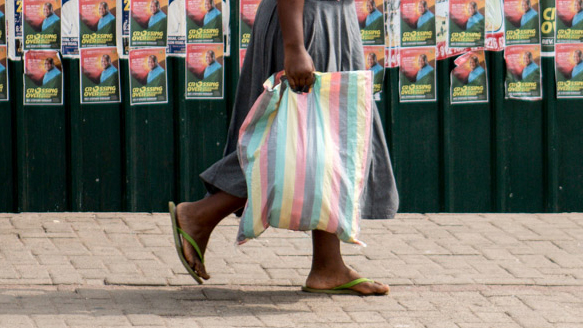Calls for Western Togoland’s independence are untenable yet understandably linked to the region’s deprivation. Political and economic reforms by the Ghanaian government to address the region’s development aspirations would be far-reaching, writes Isaac Haruna Ziaba, and reduce the structural triggers for secessionism.
During the First World War in 1914, Britain and France invaded the German colony of Togoland in West Africa, bordering the British Gold Coast colony to the East and French Dahomey (now Benin) to the West. The victors of the war divided the territory into the British Togoland and French Togoland, respectively. In 1946, the United Nations (UN) approved a trusteeship agreement which brought British Togoland (henceforth Western Togoland) under the supervision of the UN and the administering authority of Britain.
In 1956, one of the most contentious political questions for the region was whether Western Togoland should unite with the contiguous British Gold Coast colony or remain a UN Trust Territory. A UN-sanctioned plebiscite resolved this matter. Inhabitants of Western Togoland voted to form a union with the Gold Coast, culminating in the birth of Ghana in March 1957.
Nevertheless, since independence, distinct secessionist groups have emerged to demand self-determination for Western Togoland. These secessionist demands are, however, untenable because they seem not to reflect the will of the broader majority of ethnic groups that make up the entire region. Yet, the irredentist claims arise from the deprivation of a territory whose union with the Gold Coast was precisely driven by the quest for development. Political and economic reforms are required to improve the welfare of this territory, which would reduce the structural triggers of secessionism.

A brief early history
A union with the Gold Coast meant reservation of some political autonomy for Western Togoland, and the UN invited Britain to take the necessary steps to realise the union. Had this union materialised, Western Togoland would, perhaps, have had some legislative and executive powers with much bearing on its development. However, instead of a political union, Kwame Nkrumah, a Prime Minister of the Gold Coast and later Ghana’s first President, integrated Western Togoland into the Gold Coast in two ways.
First, he created the Trans-Volta Togoland (which later became the Volta Region) by welding south-Western Togoland with parts of south-eastern Gold Coast in 1952. Second, he fused north-Western Togoland with northern regions in the Gold Coast. Thus, at independence, Nkrumah had, arguably, subverted the envisaged political union and compromised the territorial identity of Western Togoland. Opponents of Nkrumah’s actions – mainly Ewe nationalists of south-Western Togoland regions such as Ho and Hohoe – were either exiled, imprisoned or co-opted.

Following Nkrumah’s Government, the Volta Region suffered marginalisation under Prime Minister Kofi A. Busia (1969-1972). For instance, the length of road constructed by the Busia administration in the Region in 1970/71 was a mile and a half compared to 72 miles built under the military regime (1966-1969) that overthrew Nkrumah in 1966. While finance of community water projects generally doubled under the Busia administration, it fell by 30% in the Volta Region. Moreover, the Government’s attempt to fight nepotism in public service disproportionately purged the civil service and police of Voltarians (Ewes).
Consequently, when General Ignatius Kutu Acheampong toppled the Busia administration in 1972, a secessionist movement – the National Liberation of Western Togoland (TOLIMO) – emerged in the Volta Region to demand Western Togoland’s independence. However, Acheampong suppressed this movement through direct arrests and the so-called Operation Counterpoint in which the Government collaborated with senior chiefs in the region to discredit the movement.
Current dynamics of secessionism
Secessionism remained in hibernation from 1980 until 2017, when the Homeland Study Group Foundation (HSGF), founded by the previously unknown Charles Kormi Kudzordzi in 1994, emerged publicly to revive the demand for Western Togoland’s independence. In 2017, the HSGF became a member of the Unrepresented Nations and Peoples Organization (UNPO), a Brussels-based international organisation that empowers the voices of unrepresented and marginalised peoples globally.
Operating from Ho, the capital of the Volta Region, the HSGF has been loud about Western Togoland’s self-determination. In May 2019, the Government foiled an attempt by the organisation to declare the region’s independence, leading to the arrest of seven masterminds behind the attempt, including Kudzordzi. Though charged with a conspiracy to commit treason, a High Court granted bail to the group in June 2019. Nonetheless, the latest secessionist claim came in September 2020, when a distinct group – the Western Togoland Restoration Front (WTRF) – mounted roadblocks and attacked police precincts in areas of the Volta Region such as North Tongu District, which had historically been part of the Gold Coast.
Why these groups have become so active since 2017 is, however, puzzling. Although the Volta Region has seen modest tangible investments, including, inter alia, the establishment of a university and a yet-to-be opened airport, these have not clearly translated into ameliorating the region’s relative deprivation. Consequently, secessionist demands partly reflect ingrained feelings of neglect by successive governments, climaxed by political events in the last four years under the current New Patriotic Party (NPP) government. These events include the creation of the Oti Region out of the Volta Region in 2018 and the inadvertent omission of the region’s roads from the 2020 budget presented before parliament in November 2019 – moves lamented by the HSGF. The group exploited the latter event as evidence of economic neglect, which led to the failed declaration of independence later that year.
Perhaps the most controversial political event has been the military deployment to the region in June 2020, prior to a voter registration exercise. An NPP Member of Parliament, K.T. Hammond, linked this deployment to the Government’s attempt to stop Togolese in the region from registering. However, the Government attributed the deployment to an effort to secure the country’s borders against COVID-19 infiltrations.
Nevertheless, the army was withdrawn following the registration exercise, perhaps, confirming the MP’s reasoning. These dynamics create a haven for nationalist groups to bud in a region that has historically been susceptible to irredentism.
Ghana’s options for claims of independence
Despite the current dynamics, the secessionist demands are unfeasible as only distinct Ewe ethnic groups in south-Western Togoland (part of Volta Region) have invariably pursued this goal. The majority of the ethnic groups and regions that constitute Western Togoland (including Oti Region, parts of Northern, North East and Upper East Regions) have been silent on Western Togoland’s restoration.
Even within the Volta Region, the secessionist movements appear to have weak local support as chiefs in the region have condemned their actions. Consequently, for the Government concerned with Ghana’s territorial integrity, negotiating with these groups may legitimise their claims with the potential of overturning the outcomes of the 1956 Plebiscite. Yet, crushing these groups, as Acheampong did in 1972, would constitute a firefighting response that does not address the structural questions.
The current and historical dynamics of secessionism in Ghana, however, underscore relative deprivation as a core motivation. Indeed, such deprivation has been the driving force behind similar secessionist claims in nearby Western Cameroon. Therefore, a sustainable, but not exhaustive, response requires a bi-partisan consensus on political reforms that transfer significant political and fiscal powers to the various 16 regions.
Political decentralisation or devolution theoretically promotes inclusive political processes and stimulates interdependence between sub-national units and central governments. When accompanied by a significant transfer of fiscal resources, devolution can promote local development. But these forms of decentralisation are lacking in Ghana, though there may be requirements to, at least, compensate the ex-Western Togoland territory (including the Volta Region) for the missed political union.
Nevertheless, since the ex-Western Togoland regions would not be the only beneficiaries of such reforms, progressive resource distribution, taking into consideration their relative neglect, may leave secessionists with little or no room to make further demands.
Photo: Lawmakers meet during a session of Parliament in Accra. Credit: Jonathan Ernst / World Bank licensed under creative commons (CC BY-NC-ND 2.0).






Pure and factual underlining concerns captured bodly in writing
Great take on the issue!
Great insight….you did justice to the topic. Kudos
The material information was resourceful for research case study.
You are a hidden talent. Please relent not in enlightening the powers of Ghana. Setting aside the union aspect will also deny Western Togoland settlement of other matters that Ghana must not front for. That is why the PLC has recommended a governmental level agreement which must naturally fizzle out any desire for secession.
Ghana has missed your mature analysis for far too long. Wisemen like you are dear.
Aside structural development, human rights issues exclusively Western Togoland can be addressed and permanently settled if the UNION CONCEPT is also seriously.considered.
A governmental level agreement will solve all the challenges for both states.
Mr Ziaba I congratulate you on this pieces. My only worry is some few points which are less factual. At least on coming up with this piece it will have been nice to seek fee opinion from the proponents. Maybe next another write up should have more facts and figures. I may help.
Hello Issac Haruna Ziaba please how do I get your contact?.
I am Nyakpo George, deputy, PRO HSGF